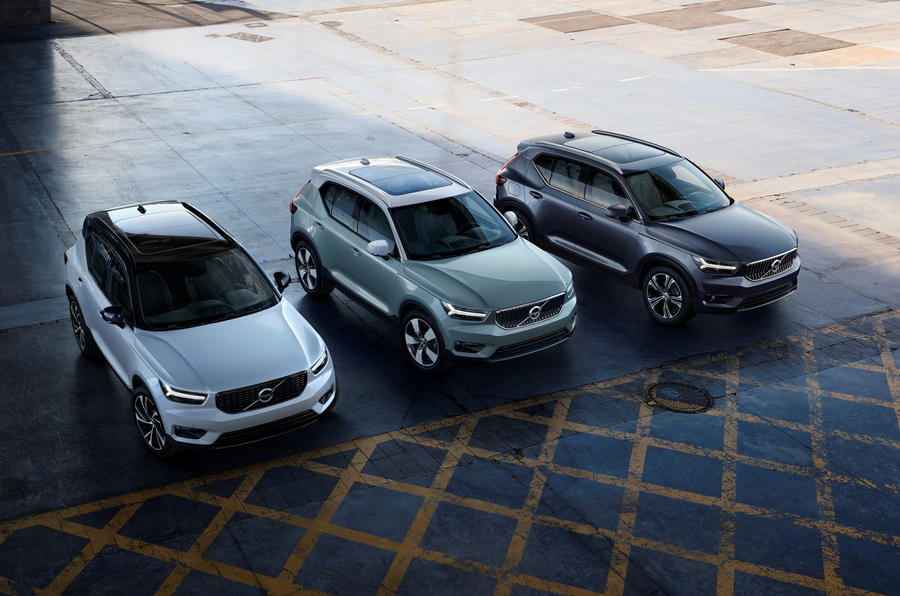Volvo’s decision to introduce a 112mph (180km/h) top speed on all its new cars from mid-2020 onwards is sure to spark a debate – and that’s exactly what the company is hoping for.
The Swedish firm has long pioneered making cars safer, and company boss Håkan Samuelsson said that having pushed car safety technology, it’s now time to focus on the three main human factors that contribute to road accidents: speeding, distraction and intoxication.
Samuelsson said the choice of 112mph was “a balance”: it exceeds the maximum speed limit in just about every country bar Germany. He added: “This is a limit where nobody should need a faster car.”
What comes next – particularly in attempting to combat distracted and intoxicated driving – is more intriguing, because it raises questions about balancing personal freedom with responsibility. As Volvo puts it, do car makers have the right or obligation to install in cars technology that can change a driver's behaviour?
GPS technology can be used to know the speed limits on roads someone is driving on. It’s an easy step from there to have such systems enforce the limit. At the same time, driver monitoring technology is being constantly refined and will soon be able to tell when someone behind the wheel is distracted or intoxicated – and potentially stop them from driving.
The question is, should such technology be used for that purpose? “Some people could see it as an intrusion,” said Samuelsson. “We’ve got no firm answer to that, so we need to think about how far we should go in limiting choice and freedom.
“It’s a discussion of whether we’re interfering in free will. There will be a debate over how much of a Big Brother Volvo should be and how much mature adults should take responsibility for their own lives.”
It’s an interesting question and Samuelsson noted similar debates were sparked when seatbelts were made compulsory, or smoking was banned in many public places.












Join the debate
Add your comment
There's already a speed limit
How many of us really drive faster than 100 mph, let alone 112?
Isn't the fun bit about acceleration - and not maximum velocity?
No Hughbl
Hitting 100+ is not that uncommon on the continent (and not just Germany). The double ton has still eluded me though I’ve managed to creep over 300km/h a few times. This is pointless as long as people can drive. Volvo drivers are a different bunch to AMG/M/RS types who would have no interest in this nonsense.
Then go to a track
'Cos you aren't gonna be driving at 300 km/h on any road in the UK.
Well...
Judging by what I see every Morning on motorways,anything from a Corsa to a Range Rover are more often than not are ignoring the Weather conditions, they drive to close, now doing 90-100mph in the pissing Rain to sane People like us is an act of sheer folly, these drivers assume that A, their great drivers, B,it always someone else’s fault, and C, it’s just plain old arrogance, Driver education seems to absent, no thought for fellow drivers, they don’t observe ahead in case they have to brake, or if they can pass safely, there are so many variables, safe driving is a fantasy at best, you can take all the precautions, bu5 you can’t allow unexpected events.
speed....
...absolutely does not kill, otherwise we would all be dead from travelling at 500 mph in passenger jets! This is as ridiculous as people beleiving that the first trains in the 1800's would kill everyone on board by sucking the air out of the lungs of passengers at 20 mph.
Its inappropriate speed to conditions/situations that kills, exacerbated by drunk/drugged/inattentive/texting drivers.
Before worrying whether a car can travel at 112mph or 120mph first change human behaviour - i.e. accepting that driving a couple of tons of metal around (at any speed) comes with responsibilities that are non-negotiable.
Governments need to force phone manufacturers to make it impossible to use a phone in any way whilst on the move, and also to ensure that 30 mph limits have reminders every 100 yards with painted limits on the tarmac too....not relying on some outdated law about distance between lamposts etc. They also need to stop the ridiculously large Tractors/equipment from being driven on country roads filling the carriageway with no escort mandatory, (this has already claimed the life of a dear friend). It shouldnt take more than half an hour to agree this, rather than procrastinating over the issue while lives are lost.
These are 'low hanging fruit' positive changes to road safety.
Pendant
And then you got on to suggest that merely changing human behaviour is an example of picking the low hanging fruit?
The Works Heath Organisation states 'in high-income countries, speed
contributes to about 30% of deaths on the
road, while in some low-income and middle-
income countries, speed is estimated to be the
main contributory factor in about half of all
road crashes.'
I agree that limiting the speed to 112mph would likely have little effect. But, automatically limiting people's speed to the speed limit of the road would likely have a hugely positive effect on minimising road deaths and serious injuries.
Your idea about mobile phones is interesting, but do you not think that the huge number of car passengers would object to their mobiles being blocked? What about if you're on the bus?
Your example of your friend having a fatality involving a tractor sounds like a tragic outlier.
Actually, I'd say saying
Actually, I'd say saying inappropriate speed kills is more accurate than speed kills, how many deaths are caused by speed that would have been saved if the car was limited to 112mph? Most road deaths are surely caused by inappropriate speed for the road and conditions that this limit won't affect, yes if they can control your speed using gps positioning that knows the limit for where you are then that would be worthy, though probably a nightmare to implement.
Ridiculous
"Speed contributes to 30% of deaths" refers to speed which is excessive for the situation and or conditions, NOT speed which is above the legal limit. Out of the 30% of deaths caused by "speed" only a small minority involve illegal speeding. The reason this vague term "speed" is used is a quite deliberate attempt to cause confusion in the hope that everyone simply assumes (as you have done) that it refers to speeds above the legal limit, but this is simply not the case.
Automatically limiting all cars to the legal speed limit will only produce a small reduction in deaths and injuries, it is obviously perfectly possible to have a very serious accident whilst traveling at say 55mph on a road with a 60mph limit, speed limiters will have no effect in these situations.
OK then
Lets have yearly tests for drivers over 85, afterall they've got the time and money.